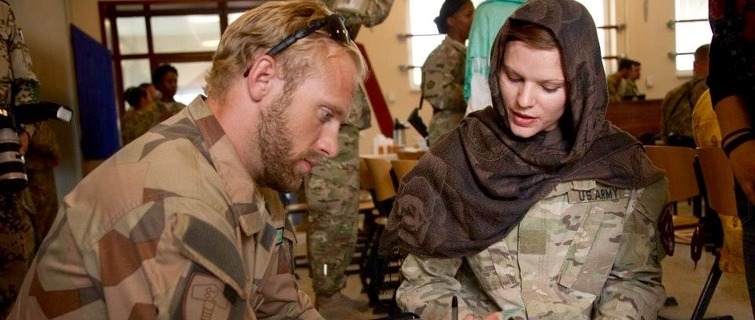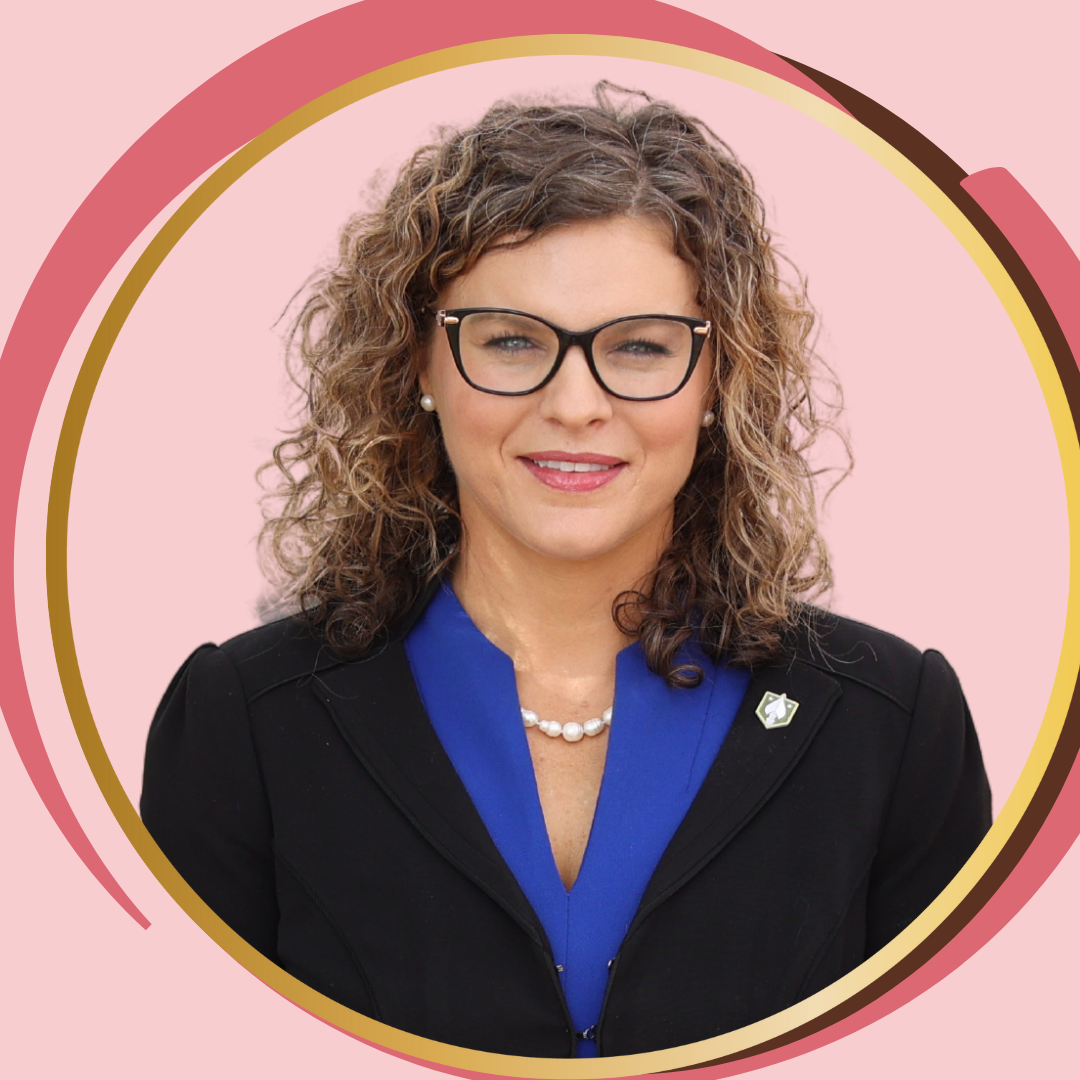
She never thought to call it the Jax Act. That would just be awkward and a little weird.
“I wanted it to be called the CST bill,” Jaclyn “Jax” Scott recalls: “Cultural Support Team Bill.”
But when Rep. Darrell Issa, R-Calif., proposed naming the legislation after Scott, an Army combat veteran who served two tours in Afghanistan with the little-known all-female unit, she had to change her mind. It was 2022, and for years Scott had been pushing to have the 300-some CST members, who joined Special Forces and Army Ranger units on dangerous missions, reclassified as combat veterans.
And Issa’s suggestion might help.
“‘I just want to tell you, your story has impacted me so much,’” Issa, the bill’s primary sponsor, told Scott at a holiday reception, she recalls. “‘We want to call this bill the Jax Act.’ They felt that—and I agree with this—it humanizes it. That there’s not only a person but a story behind it.”
A Chance To See the World

There is indeed a story behind it, a remarkable story of a woman who has had to face—and break—many barriers in her life. Growing up in a small town near Oklahoma City and mainly home-schooled, she decided to enlist in the military—in large part because she wanted to experience the world beyond the Midwest. She is also the most highly educated in her family, having earned a Master’s in Cybersecurity Risk Management from Georgetown University in 2023. Now Vice President for Cybersecurity at Pearson and a member of the U.S. Army Reserve, she also co-hosts a popular cybersecurity podcast called 2 Cyber Chicks.
“She’s got an infectious and powerful drive in her personality that connects people,” says Scott Rubin, Senior Director at Maximus and her Capstone advisor at Georgetown. “She tries to enable people who aren’t enabled. You put Jax on your team, and your team is going to make a difference.”
She has also suffered some major setbacks in her life: a traumatic brain injury she incurred in Afghanistan, along with knee and back injuries and PTSD; her years-long struggle to have those conditions recognized as combat injuries so her medical treatment would be compensated by the Veterans Administration; and finally, her push to have the work of other CST members—and the injuries some of them suffered—designated as combat-related as well. That’s what the Jax Act is all about.
The bill unanimously passed the House Veterans Affairs Committee on Dec. 5, 2023, and has strong, bipartisan support. But as of early 2024, with Congress preoccupied with a number of urgent issues, from the budget to the southern border, there is no telling when it will come up for a vote.
Scott, however, remains confident that it will pass—someday very soon. She and other CSTs have been suffering for many years in silence about their combat injuries. She believes it is worth it to wait a little longer for a bill that will change the lives of more than 300 women.
A Way to “Leverage Women”
“We had an Intel gap in Afghanistan,” Scott recalls, and the reason was obvious.
When Special Forces entered a village to try to glean information about the Taliban, the male soldiers could not talk to more than half the residents—the women and children—because of cultural and religious structures. Only another woman could do that.
“Gen. [Stanley] McChrystal was an inventive thinker, a thought leader,” Scott says, and he said, “‘Why don’t we leverage women? Why don’t we create a program that trains women just like we train our Male Special Operations?’”
When the program kicked off, about 200 U.S. servicewomen volunteered for the CTS teams, according to a 2015 Policy Brief by Women in International Security (WIIS), a nonprofit in Washington, D.C. After about two months of training, they were sent on eight- to 10-month deployments. Some women served multiple deployments. Subsequent research showed the CTS teams greatly enhanced mission success and made the encounters seem less threatening to the male villagers as well.
Often flown into remote locales by helicopter, the women were armed and carried packs weighing 80 pounds or more, just like the men did.
“We would do night operations, village stability operations. We were shot at. We lost people,” Scott says. “Everything the guys did, we were right there next to them, doing it with them.”
Her injury—there were several, but the most serious one—occurred on a night mission when she was climbing over a tall earthen wall en route to an Afghan compound. She was carrying her weapon, along with the rest of her gear, and wearing night-vision goggles, which affect depth perception.
“I thought the ground was closer than it was—and it wasn’t,” Scott says. “And I came off the wall face-first into the ground. You don’t really think about it. Just get up” and continue the mission.
She developed terrible headaches and was later diagnosed with Traumatic Brain Injury and PTSD. But when she went to the Washington DC Veterans Affairs Medical Center to tell that story and explain that her injuries were combat-related, the doctor was not sympathetic.
“He started laughing at me, and he was, like, ‘You were wearing night vision goggles and fell off a wall? Really?’ And I said, ‘Yeah, I was a Cultural Support Team [member],’ and he was, like, ‘I don’t know what that is.’” He then proceeded to ignore her injuries as if she were making them up.
Her experience was not unique. She says it happened to many CST women who were injured in combat but could not get disability benefits.
“The majority of women were automatically discounted, marginalized,” Scott says. “Our narratives were already written for us: ‘You’re a Cyber Warrant Officer? There’s no way you were in combat.’”
After repeated appeals to Congress, Scott’s service has not been reclassified as combat injuries. With the Jax Act, she is hoping that other women from the Cultural Support Teams, and women in other combat-related roles, will have their service properly acknowledged.
A ‘Real-World’ Focus
Despite the issues she has had with the military, Scott is proud of her service and grateful for the opportunities the Army has given her. Early on in her military career, she was assigned to a Fires Brigade where she served at the IT Staff Sergeant but grew disenchanted with the field, thinking it was synonymous with “help desk.” But years later, when she was deployed in Europe and working with 10th Special Forces Group as a Cyber Electromagnetic Warrant Officer, Scott was introduced to cyber threat intel and strategic cybersecurity, and her interest in technology was rekindled.
“That was in 2019, and I decided, ‘I’m going to dive into this headfirst because up to this point, I had kept getting pulled back into technology which made me believe it was a sign, and on that deployment, I decided I was going to commit to technology and see what happens,’” Scott says.
“Hence, Georgetown.”
In the Master’s in Cybersecurity Risk Management program, Scott found instructors who were engaged, approachable, and focused on real-world issues. And the support she received applied directly to her daily work and helped her feel confident in the civilian world.
“I could come in, if there was an assignment, and I had an idea that maybe didn’t exactly align with the assignment, I could go to the professor and say, ‘I am doing this at work, and noted this assignment. Do you mind if I do this instead? It will help me at my job,’” Scott says. “And they’re like, ‘Oh, absolutely!’ I did a ton of that, which was really, really cool.”
